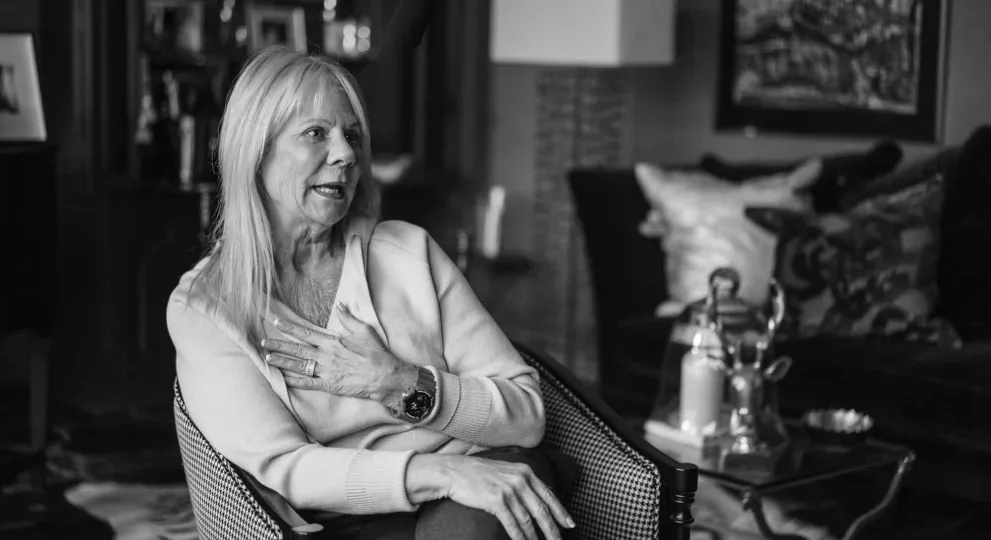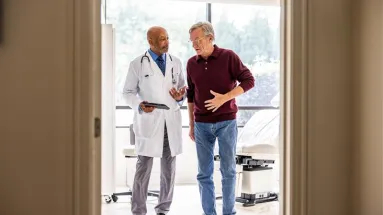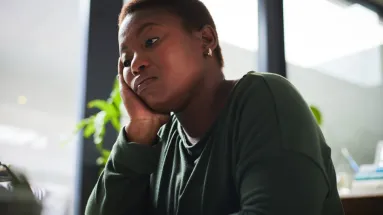Coping with survivor’s guilt
Coping with survivor’s guilt

Leslie was diagnosed with stage IV metastatic breast cancer in 2004. Her daughter, Melissa, helped care for her. Today, Leslie is in remission. But her survival is tempered by the knowledge that not everyone is so lucky.
One of Leslie and Melissa's friends was diagnosed with colon cancer around the same time that Leslie found out she had breast cancer. They would sit together during chemotherapy treatments. It was so helpful to have someone who understood exactly what Melissa and Leslie were going through.
"If you've ever seen a chemo ward," Leslie explains, "it's wide open. Everybody's sitting there with their loved ones, sharing their stories. And you know that some people in that room aren't going to make it." Their friend was one of those people. Losing him made it difficult for Leslie to feel good about having successful treatments. For her, it was hard not to feel guilty for surviving when her friend wasn't so fortunate.
You don't want to feel the guilt of being the survivor. You want everybody to survive.
"Every time that I made it through another session and was feeling a little stronger, that was a very positive thing," Leslie says. "But you don't want to feel the guilt of being the survivor. You want everybody to survive."
Remember that it's okay to grieve your loved one, and it's also okay to feel relieved after having successful treatments of your own. One feeling doesn't have to cancel the other out. It might be helpful to deal with these feelings separately. Give yourself space and time to mourn your loss. And allow yourself to feel relief—and even joy—that you're now in remission. You're still here—and that means you can carry the memory of your loved one with you. You can remember his or her kindness, generosity, humor or grace and try emulating some of these wonderful qualities in your life whenever the opportunity presents itself.
Try to stay focused on the positive
When you were first diagnosed with cancer, it may have helped you to know that you weren't alone. When you find out you're in remission, it's important for you to understand that you're not the first to do that either. There are more cancer survivors than ever before. In fact, the American Cancer Society estimates that there will be more than 20 million cancer survivors in the US by 2026.
It's vital that you focus on the good things about being in remission. You may find that life after cancer treatment isn't anything like life before it. You've changed. Allow yourself the time you need to adjust. That doesn't mean you can't plan for tomorrow. Be open to new opportunities and find things to look forward to. For Leslie, playing tennis was an important part of her recovery, and it was something she'd had to give up during some of her treatments. "I played when I could, and I kept it up and kept it up. Every time I visit with my doctors and they ask if I'm still playing tennis, the answer is absolutely, at least three times a week. To be able to play again—that has helped me so much."
I'm a survivor. I'm in remission.
For many people, having cancer is a sobering experience—and one that can give you a renewed sense of purpose in your life.
Remembering what you have been through and appreciating what you've accomplished can be a key part of moving forward. "Here I am today. I'm a survivor. I'm in remission. I've never felt better," Leslie says. "This is going to sound crazy, but I'm proud that I went through this."













